August 4, 2017
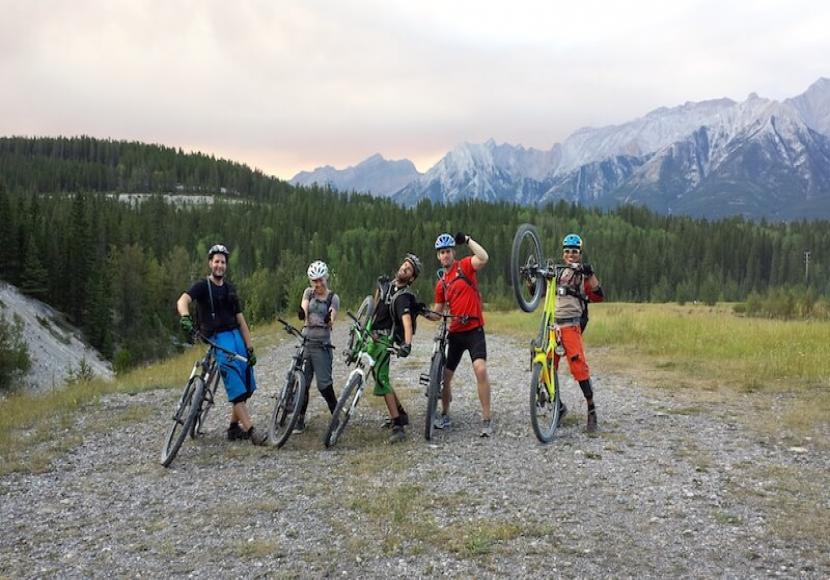
You’re probably aware of the countless physical health benefits of mountain biking…increased cardiovascular health, increased bone health, increased balance and coördination, but what about the mental health benefits of riding your mountain bike?
What is happening to your mental state when you conquer a section of trail you thought was unattainable, immerse yourself in the natural world or complete a new time goal on your favourite local trail?
The feeling you get after a long ride when sweat is dripping down your face, your muscles are tired and you’re laughing with your riding buddies as you review the best wipe outs, descents and challenges of the ride — that feeling has a lot of meaning — for you and your mental state.
IT’S IN THESE MOMENTS, THAT LIFE IS SIMPLE AND BEAUTIFUL.
It’s in these moments that a deeper sense of gratitude is built for your community, your environment, and your passions.
And, it’s in these moments that mountain biking becomes an emotional and powerful force for your overall mood, presence, and perspective on life.
Seem crazy? Well, actually mountain biking will keep you sane and here’s how:
1. NEAT NATURE
Mountain biking is a great way to experience the wonders of the natural world and take in the beauty of the world around you. Singletrack trails that lead through beautiful pine forests of British Columbia or across the desert landscapes of Moab provide you with the opportunity to make deeper connections with the natural world and ultimately, these experiences foster a greater appreciation for nature.
With the advent of numerous technologies that encourage us to spend our free time online instead of outside, many studies have been conducted on the correlation between nature immersion and happiness. In 2005, author Richard Louv coined the term ‘nature-deficit disorder’ to pinpoint the negative mental and behavioral changes that can occur when we spend less time outdoors and more time in front of screens — including depression, attention disorders, and mood disorders.
SPENDING TIME IN NATURE CAN CHANGE OUR BRAINS FOR THE BETTER.
A 2015 study from Stanford University, measured the cognitive changes when study participants took a 50-minute walk through a natural environment vs an urban centre. The participants that connected to nature and strolled through the forests experienced less anxiety, increase performance on memory tasks and greater positive emotions. If a 50-minute walking produces changes in a participants mental state, just imagine how a 2‑hour mountain bike ride can affect your mood!
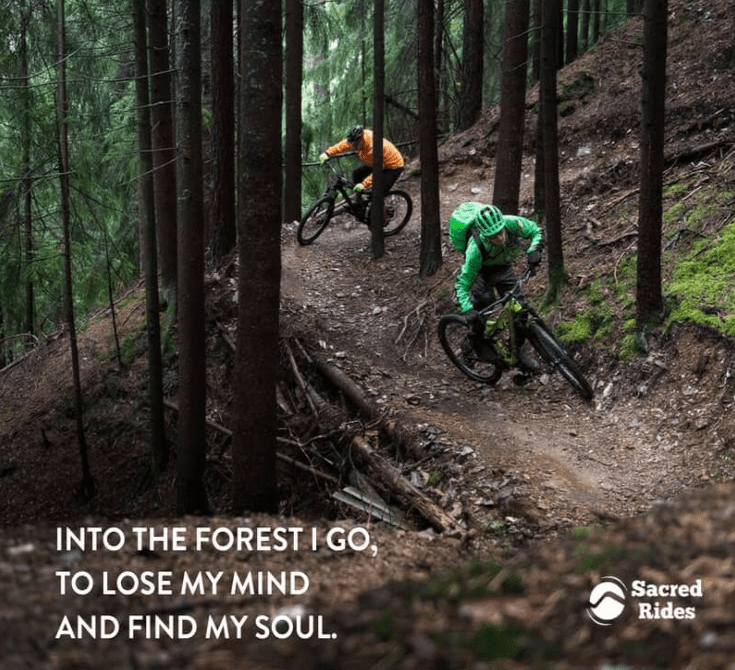
2. BADASS BIOPHILIA
Going along with the idea of ‘nature deficit disorder’ is the concept of biophilia. The biophilia hypothesis suggests that ‘humans possess an innate tendency to seek connections with nature and other forms of life.’ The term was coined by biologist and naturalist Edward O. Wilson in 1984. Wilson argues that human beings are always subconsciously searching for a connection with the natural world. The reason? Because of our deep-rooted evolutionary connection with nature and our biology. “Philias” are the attractions and positive feelings that people have toward organisms, species, habitats, processes, and objects in their natural surroundings. These positive feelings are created out on the trail — when you ride your bike or examine a beautiful panoramic view — it’s that sense of ‘awe’ that you can never really put into words.
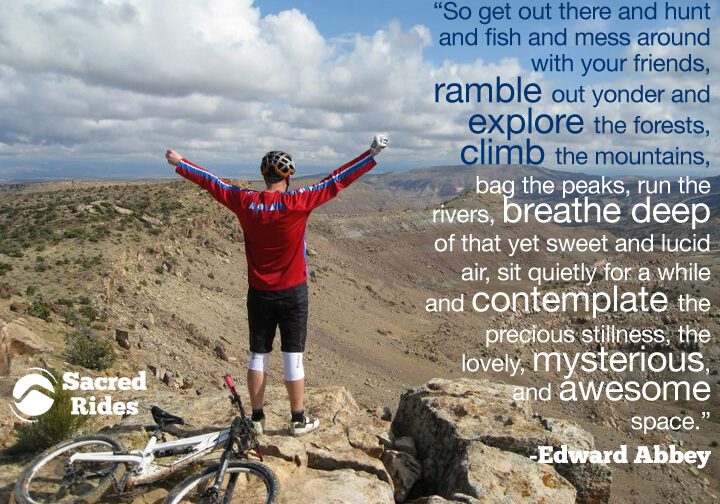
3. EXCITED ENDORPHINS
When you finish a bike ride, there is a reason you feel energized and happy — science! That’s right, when you sweat and move your body, you release endorphins and other ‘happy hormones’ that help change your mood for the better. Exercise also reduces the secretion of cortisol, the hormone that causes stress and is a proven remedy for anxiety and depression. According to a study by the University of Vermont, exercising for as little as 20 minutes a day can improve your mood for up to 12 hours. That’s a whole lot more smiling throughout the day! What’s even better? According to numerous studies, exercising outside increases the benefits of exercising even more! So, the next time you’re going to the gym to train (spin class or weight lifting perhaps?), think about how you could get the same workout, except do it outside! Ultimately, just mountain bike more!
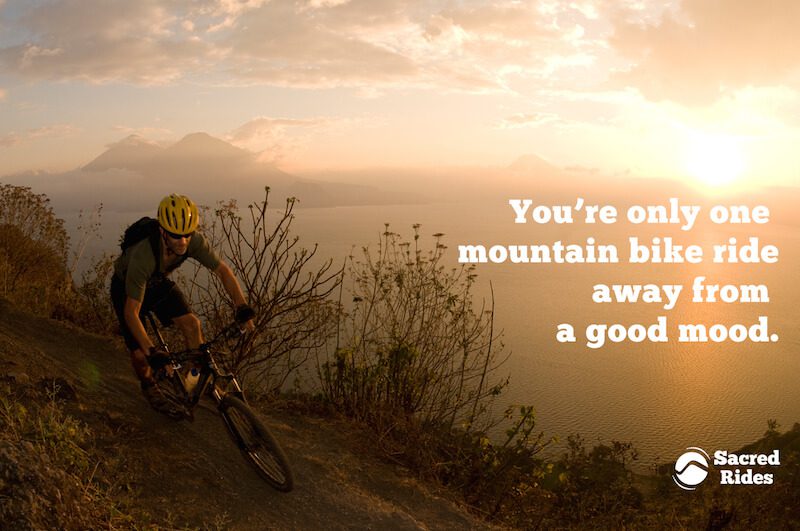
4. PEACEFULLY PRESENT
It’s hard to stay focused these days. You’re constantly pulled from one task to the other, distracted by the news, a text message or a hilarious meme from your coworker. Am I right? You sit down to finish an important work assignment and before you know it, you’re browsing StumbleUpon (Did you click that link? See distracted again!) and reading about how in 2015, more people were killed by taking selfies than by shark attacks and other useless facts. Did you know that ‘cherophobia’ is the fear of having fun? If would be hard to mountain bike with cherophobia.
Then, mountain biking steps in. You drive to the trailhead listening to your favourite tunes, change into your riding clothes, saddle up and start to sweat. And, there you are… in the moment, focused on the 20 feet of trail ahead of you, scanning for obstacles, shifting, braking and reacting to the here and now.
You might call it:
‘MINDFULNESS’ — ” THE PSYCHOLOGICAL PROCESS OF BRINGING ONE’S ATTENTION TO EXPERIENCES OCCURRING IN THE PRESENT MOMENT.
Mountain bikers have been doing it from the beginning, because if you aren’t ‘mindful’ or ‘present’ on the trail — you’ll end up crashing.
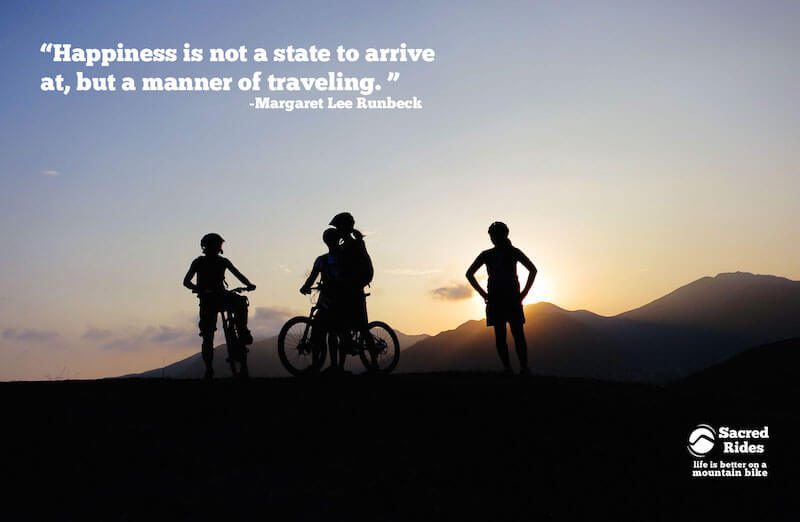
5. SUPREME SELF-ESTEEM
Mountain biking (and exercise in general) encourages you to set goals and promotes a sense of accomplishment when you work towards those goals. When you clear an obstacle on the trail for the first time or perfect a new skill it boosts your confidence.
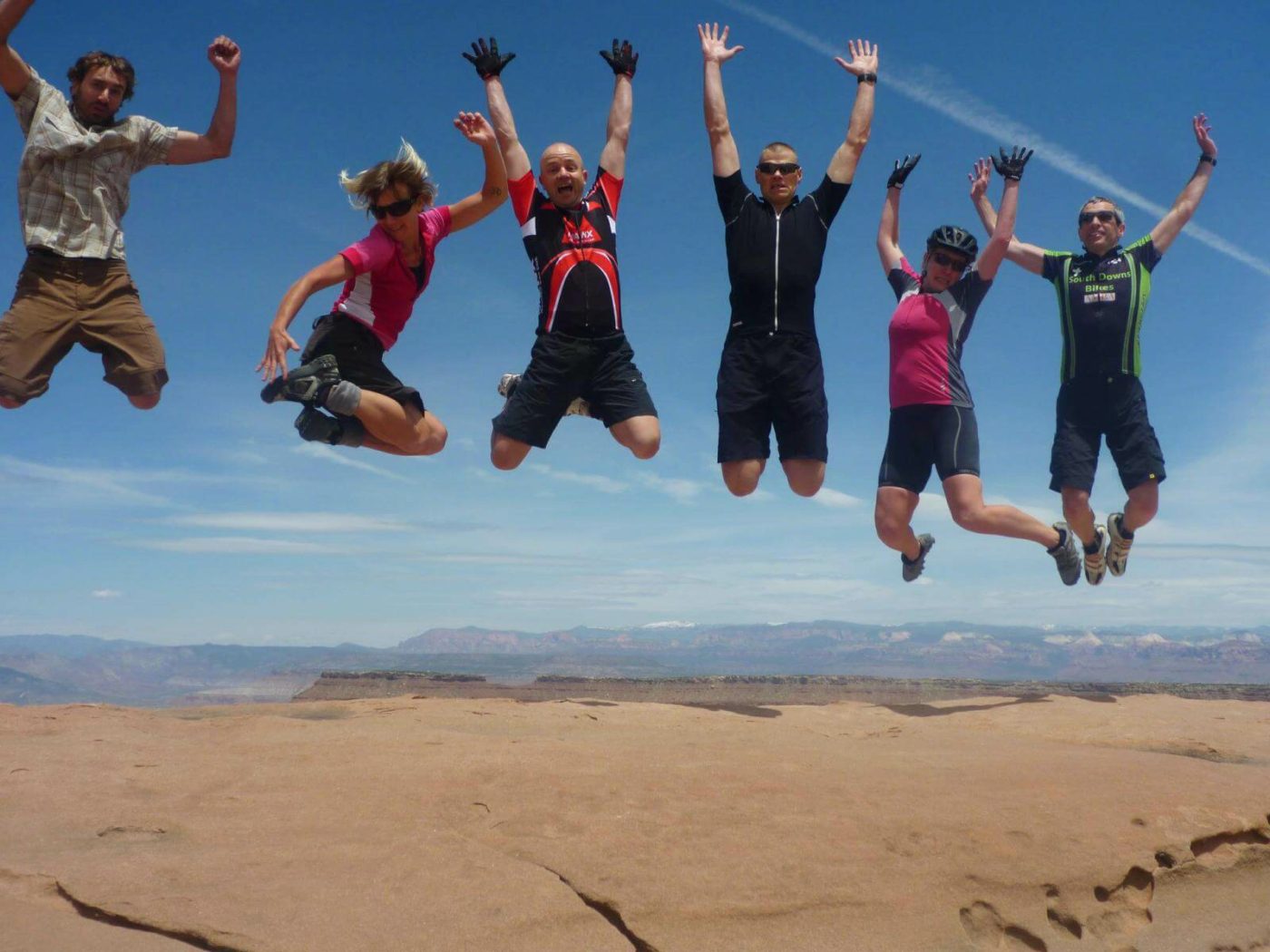
6. COMMUNITY CONNECTION
It’s common for mountain bikers to strike up a conversation on the trailhead with fellow riders, volunteer at local mountain bike events and pop into their local bike shop just to say ‘hello’. Like most sports, mountain biking creates a strong connection between fellow athletes and their community. It’s these relationships that foster a positive support network and a meaningful connection to your mountain biking neighbors and friends. This support network decreases feelings of social isolation and loneliness, which in today’s world is becoming more common. Being tied to a supportive community also encourages you to get involved in more activities and get outside. After all, when friends invite you to ride, it’s hard to say no!
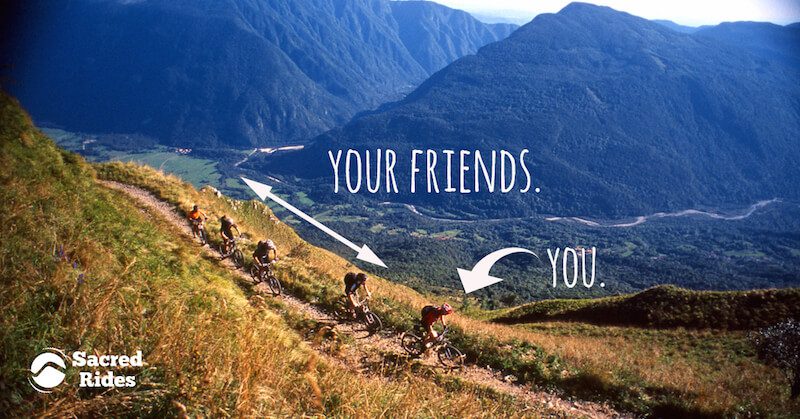
7. ABSOLUTE ADDICTION
I know what you’re thinking — is there such thing as a ‘positive addiction’? According to William Glasser, an American psychiatrist — there is! Glasser explains that there are six elements of having a positive addiction.
1. It is something non-competitive that you choose to do and you can devote approximately an hour per day.
2. It is possible for you to do it easily and it doesn’t take a good deal of mental effort to do it well.
3. You can do it alone or with others but it does not depend on others to do it.
4. You believe that it has some value (physical, mental, or spiritual) for you.
5. You believe that if you persist at it, you will improve.
6. The activity must have the quality that you can do it without criticizing yourself. If you can’t accept yourself during this time the activity will not be addicting.
Mountain biking certainly checks all the boxes of a positive addiction. Time spent on the bike beats negative addictions like screen time and booze. Once you’re hooked on mountain biking, you’ll soon discover that you’re making it a priority to ride and break a good sweat. If you’re not sure if you’re addicted, check out 22 Signs You’re Addicted to Mountain Biking — it’s good for a laugh!
